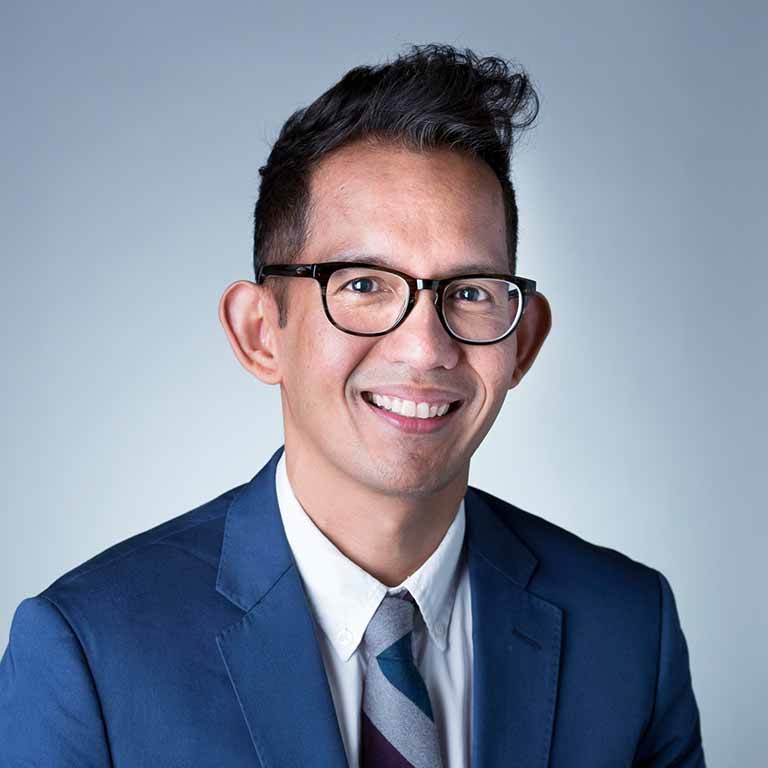
Nur Amali Ibrahim, assistant professor of religious studies and international studies at Indiana University, will give a lecture titled "Liberal Islam: Religious Play in Post‐Authoritarian Indonesia" at 5 p.m. Monday, April 23, in Chemistry Building (CHEM) Room 144 on the University of Arkansas Campus.
Many new religious and political actors emerged in Indonesia following the deposal of Indonesian President Suharto's authoritarian regime in 1998 and the subsequent adoption of democratic systems. Emerging from Islamic seminaries and universities, individuals calling themselves 'Liberal Muslims' seek to inject values like individual autonomy, gender equality, and human rights into Islam, and do so by interpreting Islamic scripture through the lens of Western humanities and social sciences. This reinterpretation occurs in private study settings that permit insults, jokes, and laughter, which render religious doctrines vulnerable and changeable.
Focusing on the playful aspects of the liberal Muslim pedagogy, this talk explores the potential and limits of religious critique in politically fluid contexts. Indonesia's Muslim population is estimated to be the largest in the world, with nearly 225 million practitioners. The Indonesian case study, which occurs in a heightened and volatile political context, brings into sharper relief processes that are happening in ordinary Muslim life everywhere
Ibrahim is an anthropologist of religion and politics who teaches in the Department of International Studies and the Department of Religious Studies at Indiana University. His book Improvisational Islam: Indonesian Youths in a Time of Possibility, on progressive and conservative Muslim youth in Indonesia, is forthcoming with Cornell University Press. Other articles he has authored appear in journals such as Comparative Studies in Society and History and Anthropological Quarterly. The National Science Foundation, the Social Science Research Council, and the Wenner Gren Foundation have funded his research.
This lecture is presented by the King Fahd Center for Middle East Studies, the Asian Studies Program, and the Department of Anthropology in the J. William Fulbright College of Arts and Sciences, and is free and open to the public. Learn more about the event on its Facebook page.
About the King Fahd Center for Middle East Studies: The King Fahd Center for Middle East Studies is an academic and research unit in the J. William Fulbright College of Arts and Sciences at the University of Arkansas. An interdisciplinary and interdepartmental area studies center that offers diverse cultural, intellectual, and educational opportunities for the University of Arkansas community, the Center promotes research and teaching in interdisciplinary Middle East studies. The Center offers an undergraduate major in Middle East Studies through the Middle East Studies (MEST) Program and supports graduate studies in related departments with graduate assistantships, as well as summer language study, conference travel, and field research grants, and teaching and research by visiting scholars from affiliated universities and programs. More information about the King Fahd Center can be found at mest.uark.edu. For ongoing news, follow the Center on Facebook and Twitter.
About the Asian Studies Program: The Asian Studies Program at the U of A draws on the strength of our faculty both in the Fulbright College of Arts and Sciences and in other colleges on campus to provide resources and training in Asian languages, cultures, history, politics and economics. In addition to offering a minor in Asian Studies, the program supports research initiatives, study abroad, and extra-curricular activities of faculty, students, and the local community. The program strives to provide students with a well-rounded education essential for careers in which knowledge of Asia is vital, promote interdisciplinary research on the Pacific region, and serve as a source of knowledge and expertise for the community.
About the Department of Anthropology: The Anthropology Department is one of the most interdisciplinary departments on campus. As scholars of humans and culture we interface with many different departments as well as off-campus communities across the natural sciences, social sciences, arts and humanities. Students are exposed to many approaches to the various subfields within archaeology, biological anthropology and cultural anthropology to better understand human similarities and differences as they prepare to continue their education in basic or applied anthropological sciences in graduate or professional school or in health or medical related careers.
Topics
Contacts
Ted R. Swedenburg, professor
Anthropology/Middle East Studies
479-575-4373,